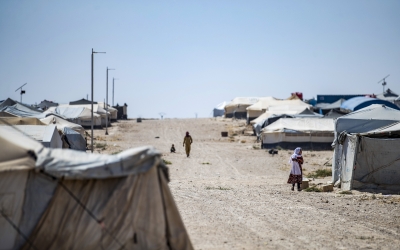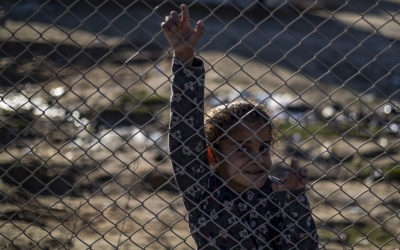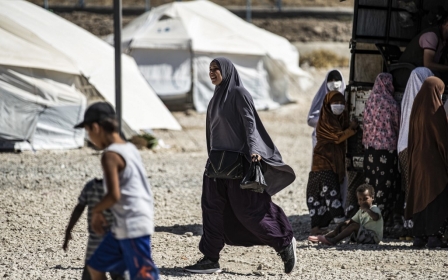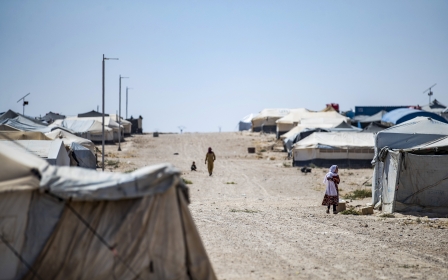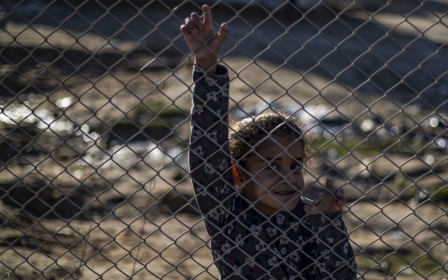Syria: UN says 12 murdered in al-Hol camp in two weeks
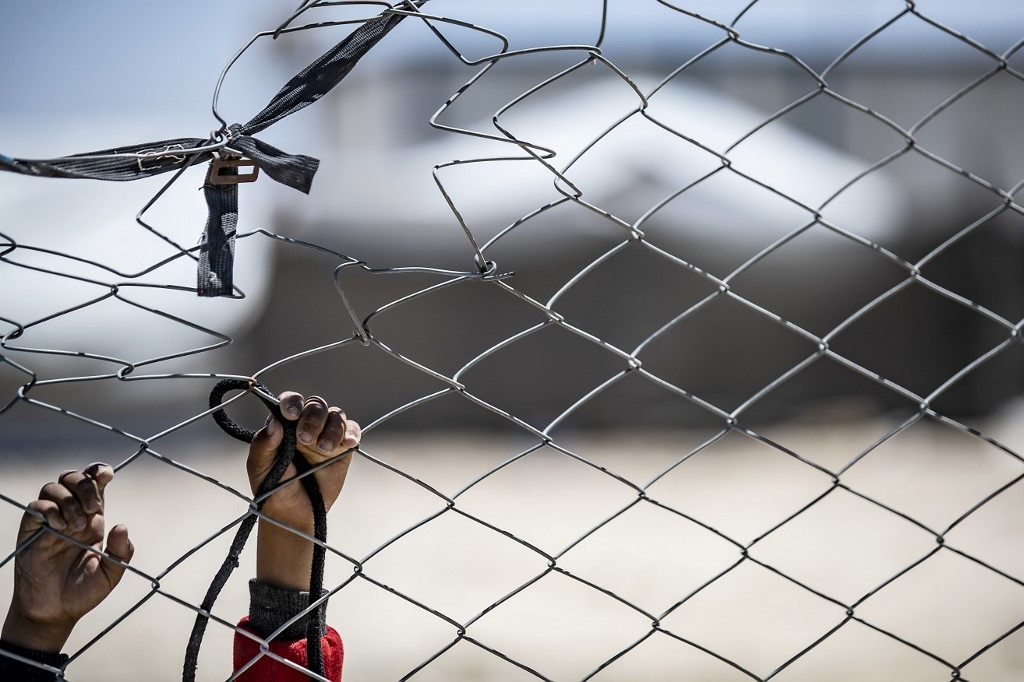
Twelve murders have taken place at a displacement camp in northeast Syria in just over two weeks, the UN has said, sounding the alarm over an "increasingly untenable" security situation.
Run by Kurdish forces, al-Hol camp holds almost 62,000 people, of whom more than 80 percent are women and children, including Syrians, Iraqis and thousands from as far afield as Europe and Asia.
The foreigners are families of members of Islamic State (IS), which seized large swathes of Iraq and Syria in 2014.
The Iraqi and Syrian residents of the camp largely fled subsequent fighting between IS and Kurdish forces.
"Between 1 and 16 January, the UN received reports of the murders of 12 Syrian and Iraqi camp residents," a UN statement said on Thursday, adding that an Iraqi woman was among those killed.
"The disturbing events indicate an increasingly untenable security environment at al-Hol," it added.
The camp, Syria's biggest, had already witnessed several security incidents in recent months, sometimes involving IS supporters.
These have included escape attempts and attacks against guards or staff employed by NGOs, sometimes with knives, other times with firearms, AFP reported.
The UN statement said that Imran Riza, its Humanitarian Coordinator for Syria, and Muhannad Hadi, the Regional Humanitarian Coordinator for the Syria Crisis, expressed their "serious concern over the deteriorating security conditions" at the camp.
The two UN officials also stressed the "urgent need for durable solutions to be found for every person living in the camp".
European reluctantance
Since the fall of IS's self-proclaimed caliphate in March 2019 after a US-backed Kurdish offensive in eastern Syria, Kurdish authorities have repeatedly demanded that countries repatriate women and children.
But most states, especially European ones, are reluctant to take back their citizens.
Some, including France, have brought home a limited number.
"The recent rise in violence... jeopardises the ability for the UN and humanitarian partners to continue to safely deliver critical humanitarian assistance," the UN statement added.
Syria's civil war erupted in 2011 after the violent repression of protests, quickly spiralling into a multi-fronted conflict that pulled in numerous actors, including foreign powers.
Middle East Eye delivers independent and unrivalled coverage and analysis of the Middle East, North Africa and beyond. To learn more about republishing this content and the associated fees, please fill out this form. More about MEE can be found here.


